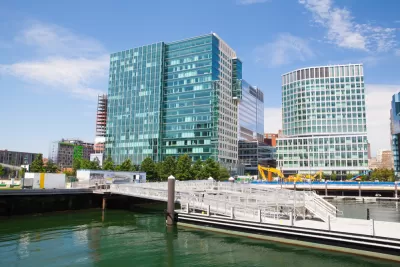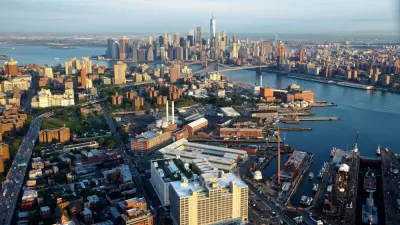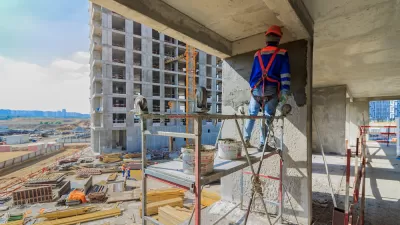Most people living in Boston's most expensive condominiums aren't from Boston, according to new research.

Tim Logan shares news of research from the Institute for Policy Studies in the Washington, D.C., which finds deficiencies in the city of Boston's luxury housing market.
"Many buyers of condominiums in the new luxury towers sprouting around Boston are either part-time residents or investors — sometimes with no clear connections to Boston," explains Logan of the study's findings, and "the city’s high-end building boom is doing little to help local residents."
After examining property records for 1,800 condos in 12 newer luxury buildings in Boston, researchers "found that more than one-third of the units are owned by limited liability companies, trusts, and other business entities that allow buyers to obscure their identities."
"Just 36 percent of owners requested the property tax exemption the city offers homeowners — a sign that the owners may live elsewhere most of the time," according to Logan.
The findings push back on the pro-development idea that new housing at the higher end of the market filters housing supply down to more affordable prices.
Since Logan broke the news of the study, Boston Mayor Marty Walsh told WGBH News that "plans to look at his policies affecting high-end construction," but isn’t interested in a tax on high-end real estate transactions.
FULL STORY: Boston’s new luxury towers appear to house few Bostonians

Study: Maui’s Plan to Convert Vacation Rentals to Long-Term Housing Could Cause Nearly $1 Billion Economic Loss
The plan would reduce visitor accommodation by 25,% resulting in 1,900 jobs lost.

North Texas Transit Leaders Tout Benefits of TOD for Growing Region
At a summit focused on transit-oriented development, policymakers discussed how North Texas’ expanded light rail system can serve as a tool for economic growth.

Why Should We Subsidize Public Transportation?
Many public transit agencies face financial stress due to rising costs, declining fare revenue, and declining subsidies. Transit advocates must provide a strong business case for increasing public transit funding.

How to Make US Trains Faster
Changes to boarding platforms and a switch to electric trains could improve U.S. passenger rail service without the added cost of high-speed rail.

Columbia’s Revitalized ‘Loop’ Is a Hub for Local Entrepreneurs
A focus on small businesses is helping a commercial corridor in Columbia, Missouri thrive.

Invasive Insect Threatens Minnesota’s Ash Forests
The Emerald Ash Borer is a rapidly spreading invasive pest threatening Minnesota’s ash trees, and homeowners are encouraged to plant diverse replacement species, avoid moving ash firewood, and monitor for signs of infestation.
Urban Design for Planners 1: Software Tools
This six-course series explores essential urban design concepts using open source software and equips planners with the tools they need to participate fully in the urban design process.
Planning for Universal Design
Learn the tools for implementing Universal Design in planning regulations.
Ascent Environmental
Borough of Carlisle
Institute for Housing and Urban Development Studies (IHS)
City of Grandview
Harvard GSD Executive Education
Toledo-Lucas County Plan Commissions
Salt Lake City
NYU Wagner Graduate School of Public Service





























